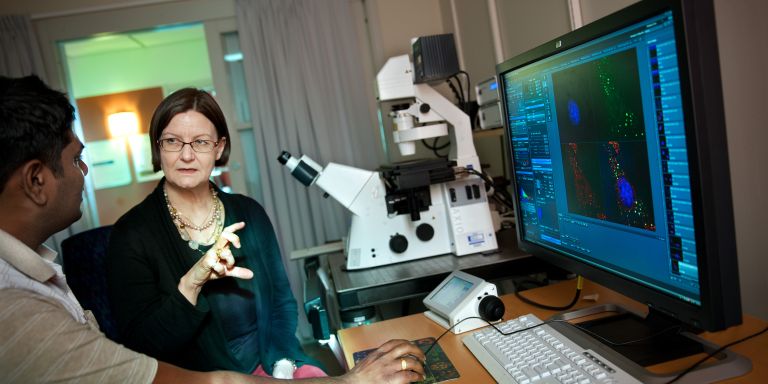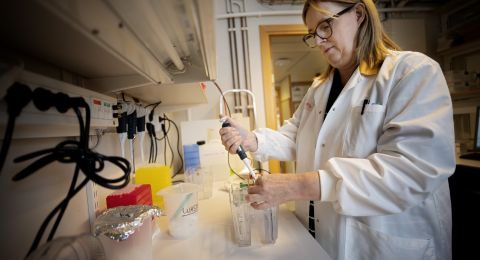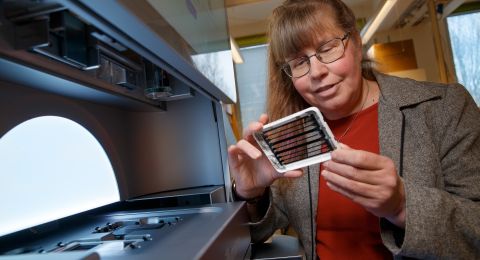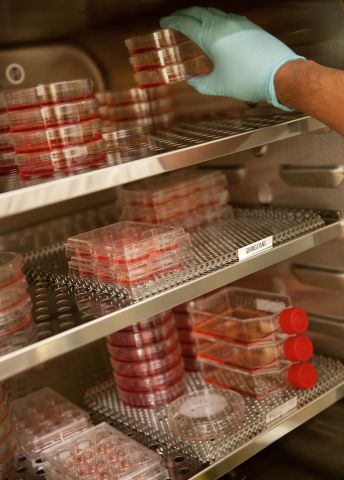
Project Grant 2012
Novel molecular cancer drug targets and biomarkers
Principal investigator:
Marene Landström, Professor in Pathology
Co-investigators:
Umeå University
Anders Bergh
Thomas Borén
Uppsala University
Ulf Landegren
Ludwig Institute for Cancer Research
Carl-Henrik Heldin
Institution:
Umeå University
Grant in SEK:
SEK 36.6 million over five years
The question that the research group would like to answer is what makes cancer cells become aggressive and invasive, which leads to them developing metastases that spread in the body.
The starting point for the studies was prostate cancer, but the research has proved to be of importance too for breast, bowel and kidney cancer as well as bladder cancer and in some cases of lung cancer.
In focus is a growth factor called transforming growth factor beta (TGF-ß). Signals from TGF-ß are known to play an important role in tumor growth in several different forms of cancer.
"Many tumors and cancers have an overproduction of TGF-ß. The tumor cells and tumor stroma – which can be composed of muscle, connective tissue and inflammatory cells – appear to produce TGF-ß, which promote interactions between cells and this make the tumor cells to become aggressive, carcinogenic," explains Marene Landström.
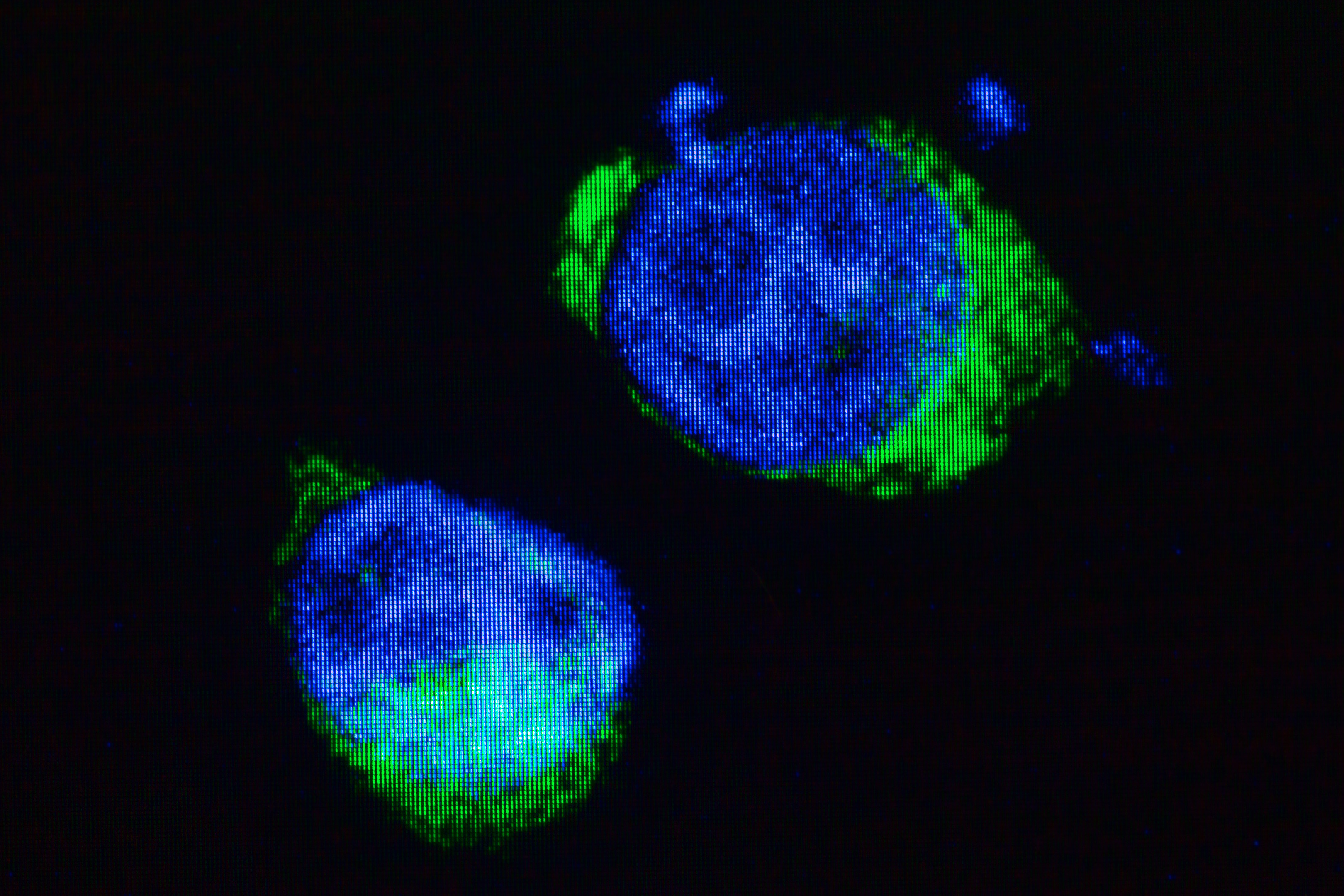
Better predictions
The connective tissue in tumor stroma is produced by both the cancer cells themselves and the surrounding stroma cells and contains many substances which play an important role in the regulation of the cancer's growth by releasing growth signals to the cancer cells.
When the cells become aggressive, they burrow into the stroma through the membrane which normally separates them.
"Then they can get out into the blood vessels and lymphatic system and spread further. It is often this that kills, because we lack good treatments when the cells have spread. As long as we have a localized tumor, we can generally remove it."
As both a physician and researcher, Marene Landström tries to attack cancers from two directions: through diagnostics with the help of existing methods; and by research into new methods.
"When it comes to prostate cancer, the problem is that we can diagnose many, but today we cannot predict which men will develop an aggressive cancer and which will have a more indolent cancer. The result is that many men receive excessive treatment and get unnecessary side effects. Statistically, surgical removal of the prostate is only necessary in one out of 20 cases."
Revealing marker
A hope that Marene Landström and her research team have is to find biomarkers that reveal which cells are aggressive and invasive.
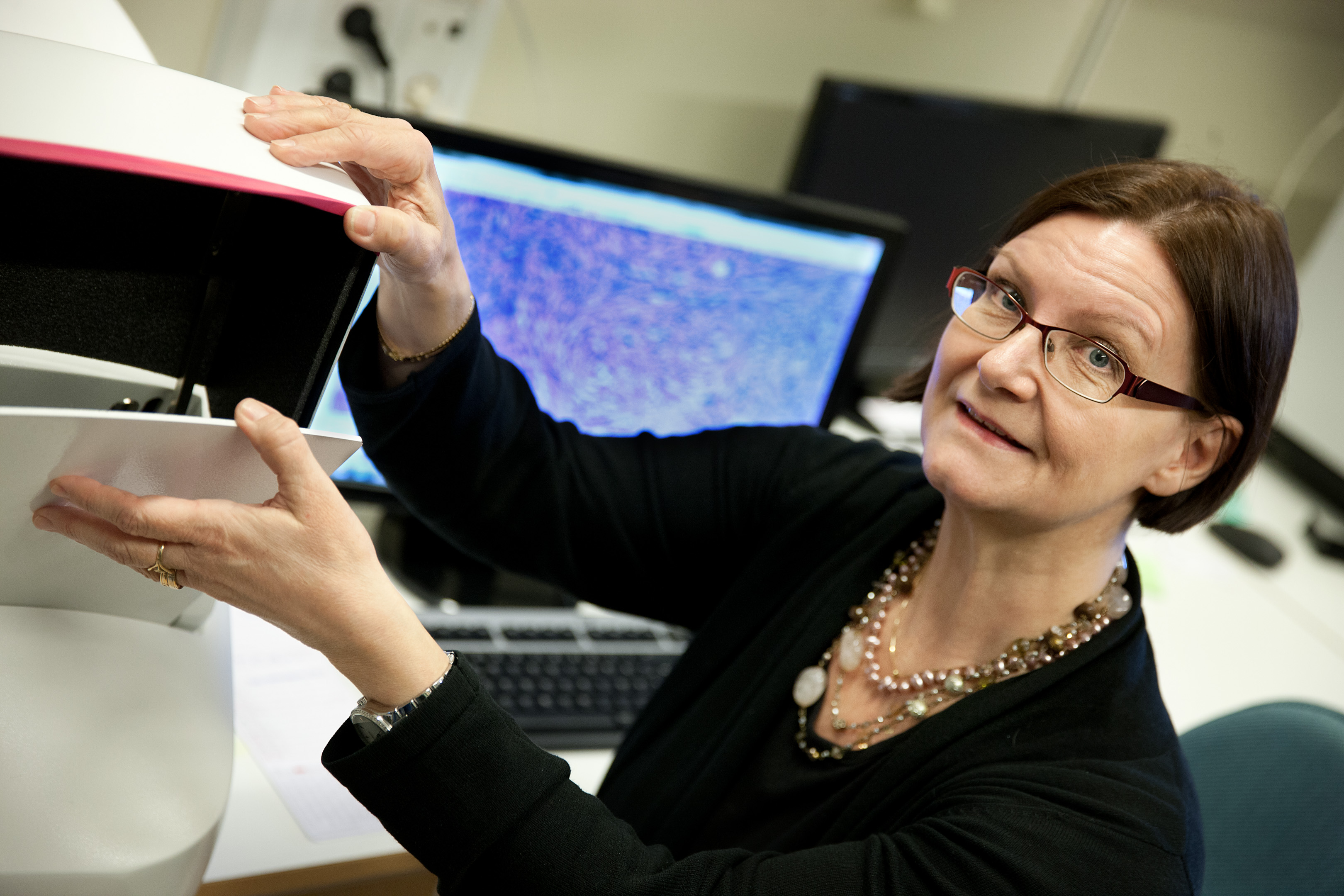
"Thanks to the fact that we have collected samples here in Umeå for such a long time from people who were both healthy and sick, we have a unique set of material to study. In the biobank, we can see if sick people already had a certain marker when they were healthy, before the cancer developed. This means that we can investigate whether the signal pathway that we discovered for prostate cancer is also active in kidney and bowel cancer for example."
In 2011, the research team discovered a signal pathway in tumor cells that can make it easier to recognize aggressive prostate cancer at an early stage.
"Previously, it had been thought that the receptor, a molecule that normally sits on the surface of the cell, moved into the nucleus and activated genes that make the cancer cells invasive. But we were able to show that only part of the receptor enters the nucleus. We are now investigating whether this new knowledge is useful in identifying new biomarkers for invasive cancer."
Potential drug candidates
"In fact, our project consists of two parts. In one part, we will look for traces of the activated signal pathway in blood and tissue samples. In the other part, we will investigate which substances can inhibit this oncogenic signaling pathway in order to develop potential drugs. In this part, we are cooperating with Professor Mikael Elofsson at Umeå University among others. He has a unique chemical library of metabolites, bacterial cells, from the Arctic Ocean for example."

The research group will examine whether any of these can obstruct the signaling pathway and stop an aggressive progression of the disease.
"We have several research leads with different approaches that can lead to potential drug candidates. We have already found an approach that works in cell cultures. In a few years, we hope to be able to begin clinical trials. But first we must get positive animal studies – when they are complete, we can contact the pharmaceutical industry."
Even if she is hopeful, she is well aware that even promising trials can come to nothing.
"They take time and there are numerous pitfalls, but you must have the courage to continue. The first thing that we would like to clarify is if there is, which we believe to be the case, a general mechanism that applies to a number of cancers. Hopefully we will know this in about two years, and then we can expand the study."
Because studies of a larger patient cohort will be needed.
"What is decisive for whether a biomarker is useful or not is whether it appears early or late in the development of cancer."
According to Marene Landström, the project grant from the Knut and Alice Wallenberg Foundation is crucial to studying these questions.
"Without it, we would not be able to tackle this big project with the force that we are doing now."
Text Carina Dahlberg
Translation Semantix
Photo Magnus Bergström
